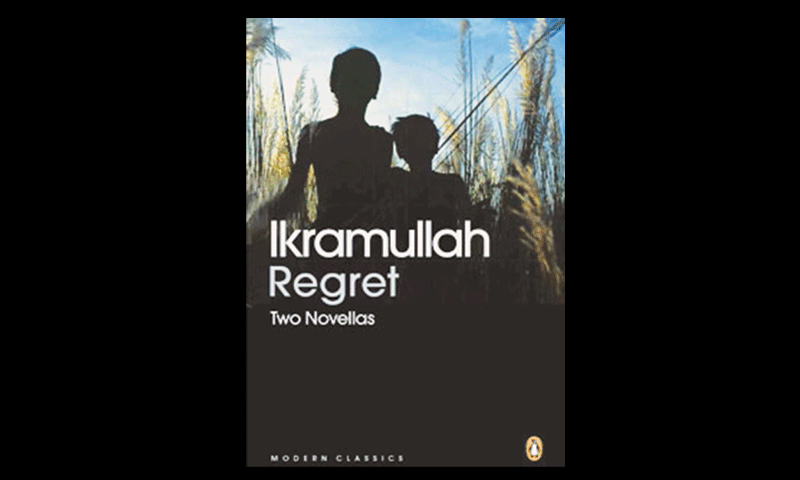
The Partition of 1947 is one of the darkest periods in modern history. The Partition is the largest migration to date. The narratives given in textbooks are quite straightforward and explained rather succinctly. I always find Partition Literature to be much more insightful and detailed. One such brilliant text is Regret by Ikramullah, who is a gifted Urdu writer. The book was originally written in Urdu and has been translated to English by Faruq Hassan and Muhammad Umar Memon. The book is divided into two novellas: Regret and Out of Sight.
Regret brilliantly recreates a childhood shattered by the partition of India in 1947. The novella begins with the story of two lifelong friends, Ehsan and Saeed, who spent their idyllic summer days bunking school, swimming in the canal. Saeed is the child narrator of the story and he talks about the class inequality between him and Ehsan, as the latter belonged to a humble background. The portrait of casteism in Indian society is painted through two girls, Lali and Toti, both of whom belonged to the Changars caste.
"Humiliation has been my companion since birth. It has been my twin."
Both Saeed and Ehsan were relishing the thrills of their first love, and things were good. But the Partition changed their lives forever. Ehsan was a die-hard supporter of the Congress party but when he witnessed bloodthirst and violence shatter his dream of seeing United India, he was forced to flee to Pakistan.

Ikramullah captures the slightest vibrations of feeling and unarticulated thought with remarkable precision, while keeping himself at an emotional distance from the events. A sad image is painted in the last part of the novella when people were begging Mahmood, a soldier, to take them to Pakistan in his truck which was already full.
Saeed and his parents managed to flee to Pakistan, leaving behind his first love, Parveen. Fast forward forty years, Ehsan manages a reputed company in Pakistan. The childhood friends reminisce on their good days in India. Ehsan wanted to stay in India but at the last moment, he had changed his mind because all of his family members fled to Pakistan.
In the second novella, Out of Sight, Ikramullah presents three characters, each of whom has their own story of escape. The first character is Ismail. Ismail was in the last year of his graduate studies and he dreamed of becoming a lawyer but sadly, he couldn't. Ismail recalls the last days before partition when the relationship between Hindus and Muslims was becoming strained. He sensed that and had narrowly escaped the carnage of 1947.
The second character is Barkatay. She was abducted from Gobindapur. She narrates how the Muslims of Gobindapur suffered at the hands of Punjabis. Her home suddenly turned into a place where violent intrusions into their private space and resulting trauma became the order of the day. Barkatay could not overcome this trauma and, eventually, died.
The third character is Bashir Ahmad. He was a friend of Ismail. He also fled to Pakistan. Unfortunately, in Pakistan, he had to face problems because he was an Ahmadi. The author writes stirringly about the miseries of the Ahmadis, a subject that Urdu fiction has coyly bypassed. The subtext tells a story of capitalist greed played out against the background of craftily calibrated sectarian machinations.

While I have read other partition literature as well, Ikramullah's work was quite different. It presents a view of the story from the lens of Muslims. Out of Sight presents remarkable insight into the experience of the Ahmadis and the problems that they faced even within the broader Muslim community. The novellas skillfully evoke the long shadow cast by the violence of the Partition. What you find in them is an honest attempt by the author to show us the world of partition-torn India and how lakhs of people's dreams and expectations shattered along with it.
Souvik Biswas is a second year student from Hindu College, pursuing History Hons. He hails from Darjeeling, West Bengal. Being marked as a bibliophile and cinephile, Souvik states that he hates billionaires and dreams of a casteless and classless society.